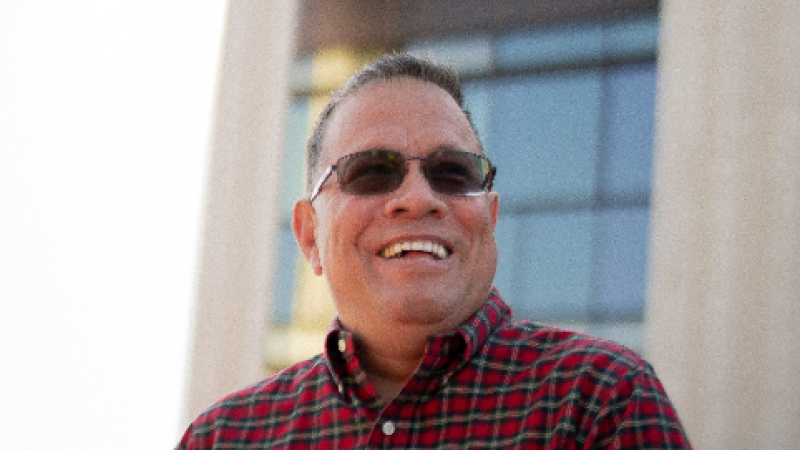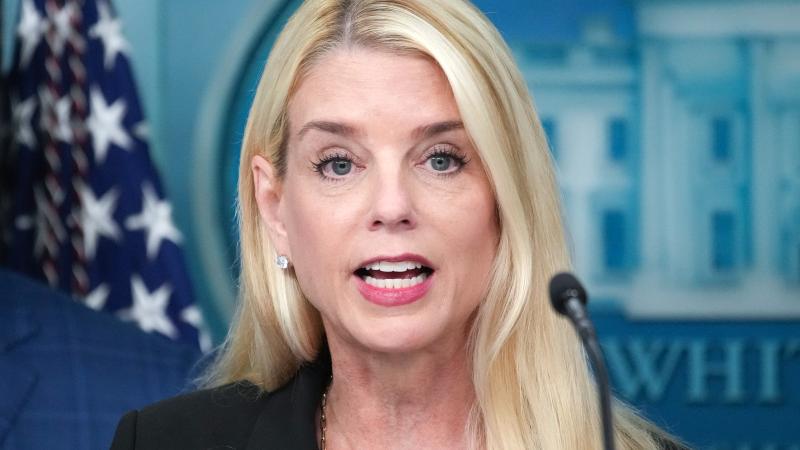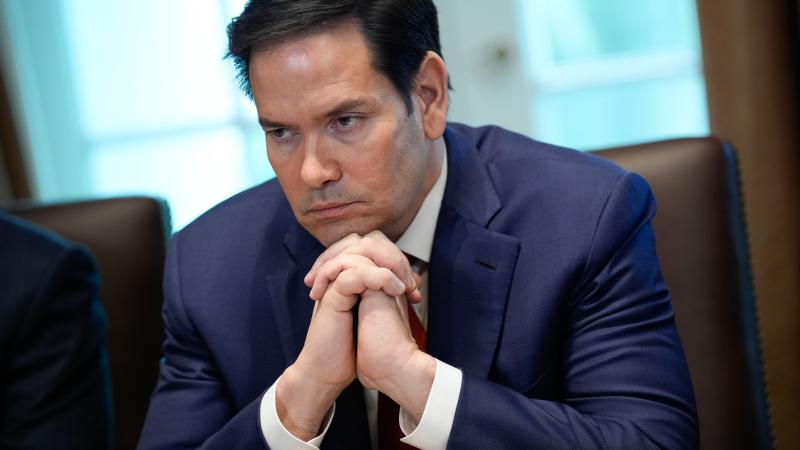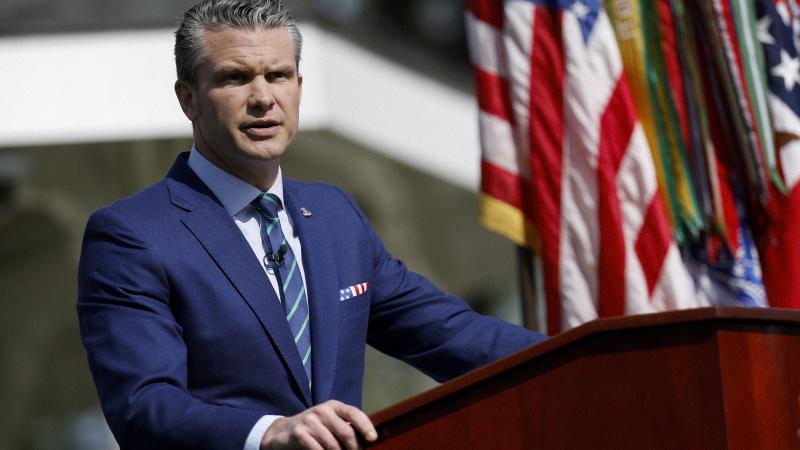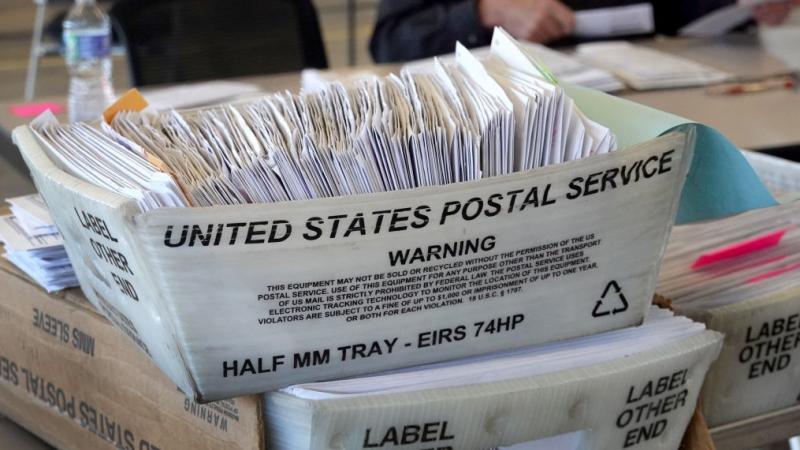Supreme Court urged to stop protecting 'incompetent and malicious' bureaucrats from liability
Qualified immunity, with no legislative basis, helps censorious "desk-bound bureaucrats" more than police in split-second decisions, Institute for Justice says.
A former New York financial regulator got away with jawboning banks and insurance companies into cutting off the National Rifle Association, after a unanimous Supreme Court ruled that "the First Amendment prohibits government officials from wielding their power selectively to punish or suppress speech," even indirectly, as Maria Vullo allegedly did.
Now an arsenal of gun-rights, conservative and libertarian groups, as well as business and financial law scholars, is asking SCOTUS to ratchet back its doctrine of qualified immunity, a legal shield invented out of whole cloth four decades ago, and let victims hold heavy-handed bureaucrats personally accountable without exception under federal statute.
The 2nd U.S. Circuit Court of Appeals granted Vullo qualified immunity after SCOTUS reinstated the NRA's First Amendment lawsuit, finding that "a reasonable officer in Vullo’s position likely would have thought that her conduct … was permissible" despite the 1963 precedent Bantam Books, which SCOTUS simply reaffirmed in reinstating the lawsuit.
The NRA asked SCOTUS to review the case a second time, to resolve whether it was "clearly established" – unambiguously unconstitutional – when Superintendent of Financial Services Vullo acted, that the First Amendment prohibits coercing "a disfavored speaker’s service providers to punish or suppress disfavored speech on her behalf."
The gun-rights group also asked whether such "obvious[ly]" unconstitutional action is clearly established "for purposes of qualified immunity despite some factual distinctions" – Bantam involved government pressure to stop distributing "objectionable" books for minors – "that are irrelevant under the governing constitutional rule."
"The broad range of administrative rules and procedures means there will always be some factual differences across cases," Consumer Reports rival Consumers' Research wrote in its brief. "Those differences should not be enough to erase the government’s liability for unconstitutionally pressuring private entities."
By finding Bantam only obviously applied to "conduits of speech," the 2nd Circuit "ignored what is obvious to financial regulators and the regulated: enterprises of scale cannot exist without the financial services Vullo targeted, and cutting off those services will necessarily cripple organizational speech," business and financial law scholars wrote in a brief.
Vullo had no excuse for her actions, motivated by the NRA's advocacy, "deliberately exploiting a regulatory environment in which regulated entities feel bound to follow even purportedly non-binding statements by their regulators," scholars including George Mason University's Todd Zywicki wrote, joined by the Independent Institute.
Courts must not ignore the "deliberate and repeated nature" of "calculated coercive acts" such as Vullo's, which she undertook "in concert with and under the direction of then-Governor Andrew Cuomo," and thus "insulate officials from the intended consequences of their premeditated malicious behavior," the brief says.
Mixed messages create 'choose your own adventure' for lower courts
Perhaps the most fiery brief came from the Institute for Justice, which flatly accused SCOTUS of hypocrisy for "recently and repeatedly" pronouncing that the judiciary should defer to the legislature on "whether to provide a damages remedy for constitutional violations," while itself inventing "the real source of the constitutional disease."
"The doctrine is more protective of desk-bound bureaucrats concocting schemes to silence their critics" – a mix of "the incompetent and malicious" – than of "well-meaning police making split-second decisions about the use of force," the libertarian public interest law firm said. "The doctrine should be, at a minimum," limited to police.
Officials like Vullo were never the intended protectees for qualified immunity, designed to accommodate "snap decisions made in the field made by police officers," according to a brief led by Gun Owners of America, a more conservative alternative to the NRA, that includes Citizens United, whose name adorns a major SCOTUS free speech precedent.
The case shows the "inherent illogic of the judicially invented doctrine of qualified immunity," which "assumes that state officials have no independent duty to understand and follow the U.S. Constitution" without a court in their jurisdiction affirming constitutional rights "in a case involving the same fact pattern," the brief says.
Vullo is "no 'cop on the beat' needing to react to an unexpected situation" but a senior official "with a small army of lawyers," yet courts give such officials "a complete excuse to avoid financial accountability" through ignorance of the law, says the brief, whose counsel of record is William J. Olson, known for advising President Trump to contest his 2020 election loss.
"This case presents an excellent vehicle for the court at least to clarify" the case law of qualified immunity "in light of the original meaning" of Section 1983 of the Civil Rights Act, which lets individuals sue public officials for violating their rights, the Alliance Defending Freedom, which has won 16 times at SCOTUS since 2011, said in its brief.
The 2nd Circuit had to grasp at straws to let Vullo off the hook, citing "the means" of her unambiguously unconstitutional "premeditated" behavior to shield her from accountability, the religious conservative law firm said.
The requisite "fair notice" to public officials on what's unconstitutional will vary by context, with the 4th Amendment requiring "specificity" because of "split-second judgments law-enforcement officials must often make to protect public safety," while "abstract articulations of constitutional rights can provide 'fair warning' in non-emergency situations" like Vullo's, ADF said.
SCOTUS has already articulated something like "an ad hoc 'sliding scale' test" for the clearly-established standard, but its "unclear directives" give appeals courts "cover to engage in a choose-your-own-adventure application of qualified immunity," the brief says, citing rulings shielding academic retaliation and campus censorship.
Trump officials like King Henry II?
"Before Vullo issued her threats, a robust body of law throughout the circuits clearly established" the unconstitutionality of indirect censorship "by coercing third parties supporting expressive activity – without regard to the nature of the business being pressured," with the 2nd Circuit ignoring its own precedent, the Foundation for Individual Rights and Expression wrote.
The civil liberties group cited rulings against jawboning involving land ownership and the "ordinarily mundane operations of a convention center," as well as the 2nd Circuit finding that "threatening consequences" for any department store that sold a "satirical" boardgame mocking the welfare system would violate the First Amendment.
Vullo's behavior "might constitute normal prosecutorial discretion in a different context," since her agency "need not prosecute every potential violation of the law," but it cannot "condition lenience in prosecution on the regulated entity’s carrying out of the state’s unconstitutional purpose" as her own words with Cuomo confirmed, another multiparty brief says.
Led by Advancing American Freedom and the Manhattan Institute, with dozens more including American Energy Institute, AARP rival Association of Mature American Citizens and Arizona State Sen. Shawnna Bolick, the brief says the Constitution prohibits "proxy war on constitutional rights," as Virginia tried to get around the school segregation ban in Brown.
The brief compares Vullo's behavior to a quote attributed to King Henry II, "Will no one rid me of this turbulent priest," which his knights understood as an order to execute Archbishop of Canterbury Thomas Becket for his refusal to blindly endorse the king's decrees.
The parties even cited recent Trump administration saber-rattling, by Attorney General Pam Bondi about "hate speech" after the assassination of Charlie Kirk and FCC Chairman Brendan Carr on "news distortion" after late-night host Jimmy Kimmel falsely implied Kirk's alleged assassin was part of MAGA, in addition to Biden administration jawboning.
The Facts Inside Our Reporter's Notebook
Videos
Links
- unanimous Supreme Court ruled
- 1963 precedent Bantam Books
- The NRA asked SCOTUS
- Consumers' Research wrote in its brief
- business and financial law scholars
- Institute for Justice
- brief led by Gun Owners of America
- advising President Trump to contest his 2020 election loss
- Alliance Defending Freedom
- won 16 times at SCOTUS since 2011
- academic retaliation
- campus censorship
- Foundation for Individual Rights and Expression
- "satirical" boardgame mocking the welfare system
- Advancing American Freedom and the Manhattan Institute
- Virginia tried to get around
- "Will no one rid me of this turbulent priest,"
